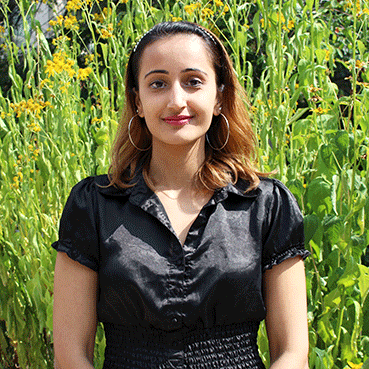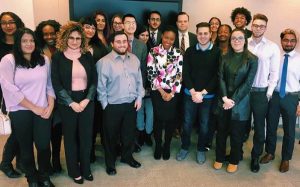 This blog is an archived post written by Sanya during her 4th year in the Environmental Politics stream.
This blog is an archived post written by Sanya during her 4th year in the Environmental Politics stream.
Often, as kids we are asked what we want to be when we grow up.
I grew up reading mystery novels such as Nancy Drew, Sherlock Holmes, Hardy Boys and dreamt of becoming a detective. I thought I would pursue Criminology in University. I changed my mind completely when I discovered Environmental Studies after taking a world issues course in high school. After starting Environmental Studies, for a very long time I thought I would teach because I also love working with children. However, as I became more immersed in policy, science, and research of intricate and sensitive problems relating to energy and the environment I realized that my interest in solving mysteries remains but the types of problems I wish to find solutions to, has slightly been altered. Through Environmental Studies I have taken classes in various subjects ranging from Climate Change Science, Health, Economics, Business and my favourite topic of Sustainable Energy through the Sustainable Energy certificate.
Having chosen the Politics stream in Environmental Studies to learn about public affairs, culture and government I have been immersed in studying the legislature that make the policies that govern environmental rules throughout Canada.
The branch of government that has caught my fascination most is the judicial branch that interprets laws, pertaining to both the public and private sector in Canada.

Me and a fellow student with Dr. Dianne Saxe when we co-moderated a question and answer session at the Sustainability Fair.
Despite my interest in environmental politics and law, I always feared the work of lawyers as movies have created an unwholesome image of their tasks in my mind.
This changed in my 4th year Ontario Politics and Policy class, where Professor Peter Love had a graduate of Osgoode Hall Law School and the joint Masters in Environmental Studies (MES) program, Sarah Robicheau, come to speak to our class. She explained her work at the Ontario’s Environmental Commissioners Office under Dr. Dianne Saxe, Ontario’s Environmental Commissioner, who is also an Environment and Energy lawyer. Ontario’s Environmental Commissioner's Office (ECO) is an independent officer of the Legislature who reports on government progress on climate change, energy and other environmental issues. The ECO is the province’s environmental watchdog and champion of Ontarians' environmental rights as prescribed by the Environmental Bill of Rights.
General advice when applying to Law School:
If you are considering law school, make sure you take classes you enjoy. Also make note of why you want to pursue law as you will need to write a compelling personal statement when you do decide to apply. Involvement through internships and volunteering will give you insight into the intricacies of human interaction that will also benefit you in more than one way. For Ontario schools, you will have to apply by November 1st of the year prior to the year you wish to begin your journey at law school. For example, If I want to start in September 2018, I would have to apply by November 1st 2017.
Remember that professors are there to help you and it’s never wrong to ask for advice or some guidance. You will need 2-3 academic references for your application.
I would also suggest either taking a class in modes of reasoning as an elective or picking up a Law Schools Admissions Test (LSAT) prep book during the summer, but some even take time off after their undergraduate degree to study for the LSAT (there is no right answer). There are many courses that you can take from an official LSAT tutor as well. I am using the Powerscore Bibles and they are a very thoroughly detailed composition of what the actual test entails. There are countless online sources that can help you figure out what your study schedule should be like. It requires dedicated and uninterrupted time to excel at this test. Everyone has different time frames of how long it takes to prepare, ranging from three months to over a year.
The Princeton Review holds mock test sessions on the York University Campus for those that want real test day experience.
There are valuable sources such as 7sage and Manhattan Prep forums that can help you understand the answers to the questions when you’re stuck.
It is also true as stated above that you do not have to be a lawyer after attending law school but if you really want to know what it would be like to practice law, there are tours that the Law and Society Student Association hosts throughout the year to law firms and courthouses.

Here is a picture of me (second from right in the last row) next to lawyer Patrick Gordan (in the striped brown tie) and fellow students that went on the tour.
I visited the law firm BLAKES, in the heart of the financial district and was pleased to have every single misconception about lawyers broken down.
Study hard and the rewards will speak for themselves. The organizational, time management and analytical skills plus the discipline I have gained through just studying for the LSAT are transferable to any other part of my life.
I look forward to gaining the knowledge that law school has to offer and the maturity I will achieve as a human being that can only come from dedication to the discipline that you love.

